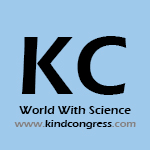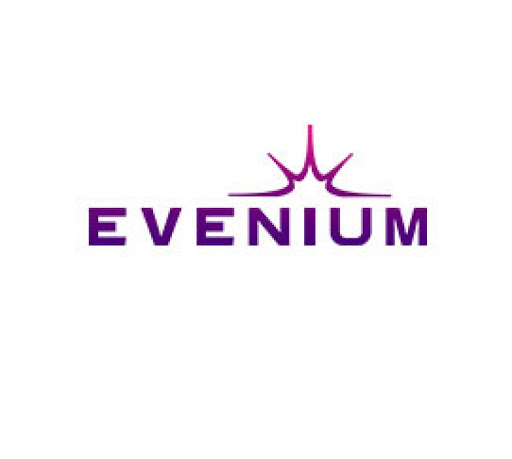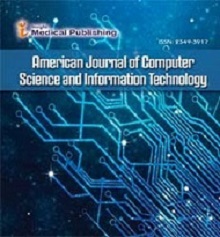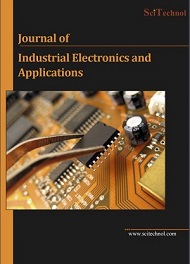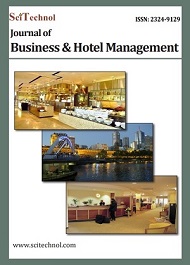Track 1: Business and Management
Business and Management are the disciplines dedicated to organizing, analysing, and planning various types of business operations. Business Management is a choice for anyone wanting to fasten their career or learn more about the realities of starting or managing a business. Business management is the act of organizing people to achieve the desired goals and objectives of a business. It includes all aspects of over regulating and supervising business operations. It will allow you to come up with new ideas and find ways to utilize them properly.
-
Business innovation
-
Human Resource Management
-
Business communication
-
Management information system
-
Accounting and finance
-
Risk management
Track 2: Marketing
Marketing is one of the study and management of exchange relationships. It mainly includes advertising, selling, and delivering products to consumers or other businesses. The key process of marketing is bringing a product to market, which includes these following steps such as broad market research, market segmentation and market targeting ; determining distribution, pricing and furthering strategies; advancing the communications strategy, budgeting, and also visioning long-term market development goals.
-
Marketing strategies
-
Marketing management
-
Marketing research
-
Search engine optimisation
Track 3: Artificial intelligence and Robotics
Artificial Intelligence is a term that involves the use of a computer to replicate intelligent behaviour. Artificial Intelligence is one of the latest trending technology in many fields especially in industries like manufacturing, control systems, Data mining. Robotics is a branch of engineering that mainly involves the conception, design, manufacture, and operation of robots. Robotics involved in building robots whereas artificial intelligence involved in programming intelligence.
-
Machine learning
-
Computer vision
-
Reinforcement learning
-
Natural language processing
-
Deep learning
Track 4: Entrepreneurship
Entrepreneurship is the key procedure of designing, launching and running a new business, which is often initially a small business. People who create these businesses are called as entrepreneurs. It is the process by which either an individual or a team recognizes a business opportunity and obtains and deploys the utilise resources required for its exploitation. Growth of entrepreneurship also leads to the economic growth of the country. Entrepreneurs play a important role in any economy, using the skills and initiative necessary to anticipate needs and bring good new ideas to market.
-
Start-up entrepreneurship
-
Women entrepreneurship
-
Social entrepreneurship
-
Entrepreneurship and growth
-
Innovation
Track 5: Computer Science
Computer Science is the study of computers and also computational systems. Unlike the computer scientists, computer and electrical engineers, mostly deals with software and software systems; this includes their theory, design, development, and application. It is the scientific and practical methodology to computation and its applications. As computer authorization became more widespread and affordable, less human assistance was needed for common usage.
-
Computer graphics
-
Computer architecture
-
Data structure and data analytics
-
Mathematical foundations
-
Communication and security
Track 6: Earth and Environmental sciences
Earth Science is branch of science dealing with the physical constitution of the Earth and its atmosphere. It is the study of our planet's physical characteristics, from earthquakes to raindrops, and floods to fossils. Environmental science is an versatile academic field that integrates biological, physical and information sciences to the study of the environment, and the solution of environmental problems. Environmental engineering mainly focuses on design and technology for improving environmental quality in every aspect.
-
Atmospheric sciences
-
Ecology
-
Geo sciences
-
Environmental management
-
Natural disasters
Track 7: Physical Sciences
Natural science can be mainly divided into two main branches: physical science and life science. Physical science is of the branch of natural science that studies non-living systems, in contrast to life science. Physical science is the systematic Study of non-living system and study of the inorganic world, as distinct from the study of the organic world, which is the province of biological science. Physical science is ordinarily consists of four broad areas: astronomy, physics, chemistry, and the Earth sciences.
-
Kinematics
-
Electrical energy
-
Dynamics
-
Astronomy
-
Mechanics
Track 8: Infectious Disease
These are diseases that are caused by organisms like microorganisms, viruses, fungi, or parasites that can infect directly or indirectly from one person to another person. Humans may also become infected following exposure to an infected animal that harbours an unhealthful organism that's capable of infecting humans. Infectious diseases are the main reason for death worldwide, significantly in low financial gain countries, particularly in young youngsters. Infectious diseases can be spread, directly or indirectly, from one person to another person.
-
Bacterial infections
-
Microbial infections
-
Viral infections
-
Parasitic infections
-
Immunization
-
Infection control
Track9: Chemicals
Chemicals are the part of our daily life. All living and abiotic matter is made up of chemicals and virtually every manufactured product involves the use of chemicals. Many chemicals can, when properly used, significantly contribute to the improvement of our quality of life, health and well-being. But other chemicals are highly hazardous and can negatively affect our health and environment when improperly managed.
-
Chemical industry
-
Chemical reactions
-
Chemical compounds
-
Chemical risk management
-
Chemical engineering
Track 10: Energy and Engineering
Energy engineering is one of the broad field of engineering mainly deals with energy efficiency, facility management, energy services, environmental compliance, plant engineering, sustainable energy and renewable energy technologies. Energy engineering combines knowledge from the fields of physics, chemistry and math with economic and environmental engineering practices. An energy engineer applies their skills to increase efficiency and further develop renewable sources of energy.
-
Energy efficiency
-
Aeronautical engineering and Aerospace industry
-
Energy and environmental engineering
-
Power engineering
-
Solar design
-
Petroleum engineering
Track 11: Electronics
Electronics is the branch which controls the flow of electrons. It mainly deals with circuits made up of components that control the flow of electricity. It is a part of physics and electrical engineering. Electronics is commonly used in information processing, telecommunication, and signal processing. The capability of electronic devices to act as switches makes digital information-processing possible. Electronic devices mainly perform three functions: amplification, switching, and oscillation, all as part of circuits. Circuit consists of a series of connected electron devices and other parts.
-
Industrial electronics
-
Digital systems
-
Electronic devices
-
Control systems and applications
-
Information processing and communications
-
Automotive technology
-
Mechatronics
Track 12: Health care management
Healthcare management is also called as healthcare command, management of public health systems, healthcare systems and entire hospital networks or other medical potential facilities. The duties of these professionals are like individual departments run properly, qualified employees are recruited, information is disseminated efficiently throughout the company, specific outcomes are reached and resources are used efficiently, among many other duties.
-
Primary health care
-
Paediatric and neonatal Health care
-
Global primary care
-
Health care education and training
-
Nursing and administration
Track13: Material Science
Material science is one of the branch of science broadly deals with the structure, performance, characterization, properties and methodology of materials that are associated with construction like metals, ceramics, polymers and composites etc. Materials science promotes and contributes the exposure of various Nano materials, biomaterials, optical, magnetic materials, electronic, piezoelectric materials, ceramics, glasses, polymers, smart materials, metal alloys, and semiconductor materials.
-
Ceramics and glasses
-
Bio Materials
-
Material science and technology
-
Metallurgy
Track14: Bio medical engineering
Biomedical engineering refers to study of medical equipment utilized in an environment of care or training and the way this equipment interfaces with the physical body. Biomedical engineers design, test, modify, recommend modification of, and evaluate all medical equipment wont to interface or interact with the physical body. Biomedical engineering is the implication of engineering theories and concepts to medicine and biology for therapeutic and diagnostic purposes.
-
Bio Informatics
-
Bio technology
-
Bio signal processing
-
Neural system and engineering
-
Orthopaedic bio engineering
-
Rehabilitation engineering
Track 15: Arts and Social sciences
Art is a multiple range of human activities involved in creating visual, , performed arti facts, or auditory— artworks—that shows the author’s imaginative or technical skill, and are intended to be appreciated for their beauty The main principles of art include movement, harmony, unity, variety, balance, proportion , contrast and pattern. Social science is the branch of science deals with the study of human societies and the relationships among individuals within those societies. The major social sciences are Anthropology, Archaeology, Geography, History, Law, Linguistics, Politics, Economics, Psychology and Sociology.
-
Social management
-
Public administrations
-
Economics
-
Psychology
-
Creative art and fine arts
Track16: Radiology
Radiology is branch of medicine concerned with the uses radiant energy or medical imaging to diagnose and treat diseases within the bodies of both humans and animals. There are many imaging techniques like computed tomography, X-ray radiography, ultrasound, and nuclear medicine including positron emission tomography, and also magnetic resonance imaging are used for treatment of diseases.
-
Computational tomography systems
-
Ultrasound systems
-
Digital radiography systems
-
MRI systems
Track17: Pharmaceutical Sciences
It is one among the vital and interdisciplinary field that aims to combine fundamental principles of physical and organic chemistry, biochemistry, engineering and biology to understand how to enhance delivery of drugs in to body and convert this integrated understanding into new and improved therapies against human disease. Pharmaceutical science can be classified into the following main categories such as Drug discovery and design, Drug delivery, Drug action, Clinical sciences, Drug analysis.
-
Drug development sciences and industrial pharmacy
-
Pharmacology
-
Organic process research and development
-
Medicinal chemistry
-
Pharmacognosy
Track18: Nano technology
Nanotechnology and Nano science are the study and application of extremely small things and these can be used across all the other science fields like biology, physics, chemistry, materials science, and engineering. Nano technology is also used to treat diseases and prevent health issues. Nanotechnology provides the potential for new and faster kinds of computers, life-saving medical treatments and more efficient power sources.
-
Nano materials
-
Nano medicine
-
Nano drug delivery systems
-
Sustainability
-
Nano technology and applications
Track19: Stem cells
Stem cells can differentiate into other types of cells and can also divide in self-renewal to produce more of the same type of stem cells. There are different types of stem cells such as adult stem cells, embryonic (or pluripotent) stem cells, and induced pluripotent stem cells. Stem cells are used to treat diseases and can potentially reduce the morbidity and mortality for those awaiting transplants.
-
Cancer Stem cells
-
Stem cells in cardio vascular disorders
-
Innovations in cancer research and oncology
-
Insights of stem cells
-
Cellular and gene therapy
-
Stem cells treatment
Track 20: Immunology
Immunology is the branch of biology that deals with immune systems in all organisms .The immune system helps us to protect us from infection through different mechanisms. If the immune system does not function well it may leads to diseases like autoimmunity, allergy and cancer. Immune system is sub divided into two types one is innate immunity and other is adaptive immunity.
-
Immune system and immunology
-
Auto immune diseases
-
Immunization and vaccination
-
Immuno research and immunotechnology
-
Immuno genetics




